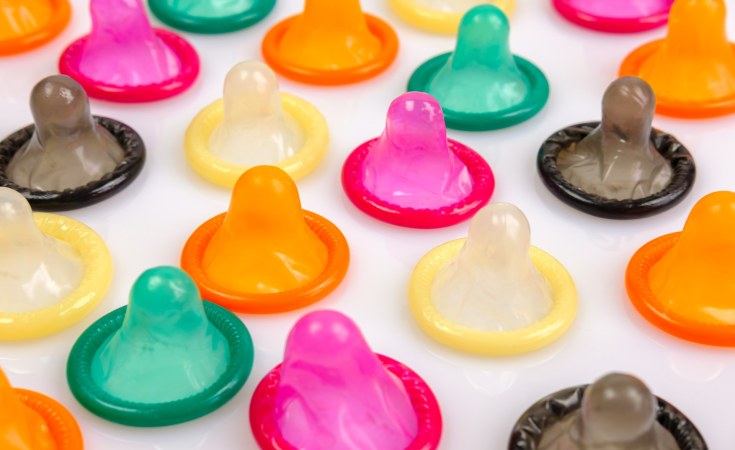Gaborone — LGBTQ+ people are still struggling to access medical care four years since the southern African country decriminalised gay sex
- Botswana's trans community at high risk of HIV
- Condom shortage since 2021 cuts off free supplies
- LGBTQ+ patients also face stigma and discrimination
When Kesego Otumile, a transgender woman from Botswana, sought treatment for a sexually transmitted infection at a village medical clinic, the female nurse refused to treat her and sent her to a male colleague instead.
"She said she felt uncomfortable as 'I'm like a man'," Otumile told Openly by phone. "The male nurse then refused to give me condoms and said, 'just abstain, you people are promiscuous and dirty'."
A 2019 court ruling that decriminalised gay sex in Botswana put the nation among a handful of African countries that have legalised same-sex relationships, but four years on, discrimination against LGBTQ+ people remains widespread.
As in other African nations, trans people in particular struggle to access public services including healthcare in the country of 2.5 million, raising their risk of sexually transmitted infections and HIV.
Trans people are at the greatest risk of HIV infection in Botswana, which is among the top four countries in the world most affected by HIV and AIDS with up to 400,000 people living with the virus, according to UNAIDS estimates.
Access to medical help is hampered by discrimination from staff, an ongoing shortage of condoms and a lack of sexual health awareness campaigns that address their particular needs, activists said.
"The LGBTQ+ community is never adequately represented or identified directly and so they often feel left out and not represented in mainstream HIV/AIDS campaigns," said Hazel Mokgathi, director of NGO African Women for Sexual Health.
Due to a supply shortage in the past two years, condoms are only being distributed for free after medical consultation. Previously, people could take them from dispensers outside hospitals and other public buildings.
A Health Ministry spokesperson said all patients are given adequate care and that "we strive to treat all patients equally, regardless of sexual orientation or preference".
Health Minister Edwin Dikoloti said earlier this year that efforts were "underway to strengthen the national supply chain system of condoms locally", and officials said recently that imports had recovered.
DISCRIMINATION
While the 2019 court ruling decriminalised gay sex, lawmakers are currently debating a legislative amendment that would build on that by recognising same-sex relationships and trans identities.
The proposals have drawn fierce opposition from the Botswana Council of Churches, fuelling anti-LGBTQ+ rhetoric in a country where acceptance towards the community had been growing.
A 2021 survey by research network Afrobarometer found Botswana was the fifth most tolerant African nation towards LGBTQ+ people, with 50% of respondents stating they liked or felt indifferent towards the community.
But persistent homophobic attitudes, including among healthcare professionals, deter some LGBTQ+ people from seeking medical care including HIV testing and pre-exposure prophylaxis (PrEP) medication, which can increase the risk of the virus's spread, campaigners say.
Free condoms, HIV tests and screening for sexually transmitted infections (STIs) "should be offered without any discrimination whatsoever", said Dumiso Gatsha, founder and advocacy director at NGO Success Capital, an LGBTQ+ rights non-profit.
Tshidiso Mooketsi, a gay trans man living in Gaborone, said he was mocked by a healthcare professional during a medical appointment, and told there was no medication for him at another.
He said members of the LGBTQ+ community who can afford it prefer to travel to neighbouring South Africa for healthcare or pay to see a private doctor.
"When I ask (LGBTQ+ friends), most of them said they fear stigma and ill-treatment. Some even have to hide their gender identity to be able to get sufficient help in medical facilities," he said.
Some campaigners are working on initiatives to overcome healthcare barriers.
Thabo Kgobothi, an activist, has collaborated with a friend who works in the medical fraternity to develop a clinic and "safe house" for the LGBTQ+ community, in the capital.
As well as offering tests for HIV and STIs, the centre also offers free information on sexual health and general wellness, including counselling for people living with HIV.
"It is important to ensure that the trans and gay community have safe spaces where they are accepted and their rights and dignity is upheld," Kgobothi said.
(Reporting by Keletso Thobega; Editing by Helen Popper and Lucy Middleton. The Thomson Reuters Foundation is the charitable arm of Thomson Reuters. Visit https://www.openlynews.com/)


